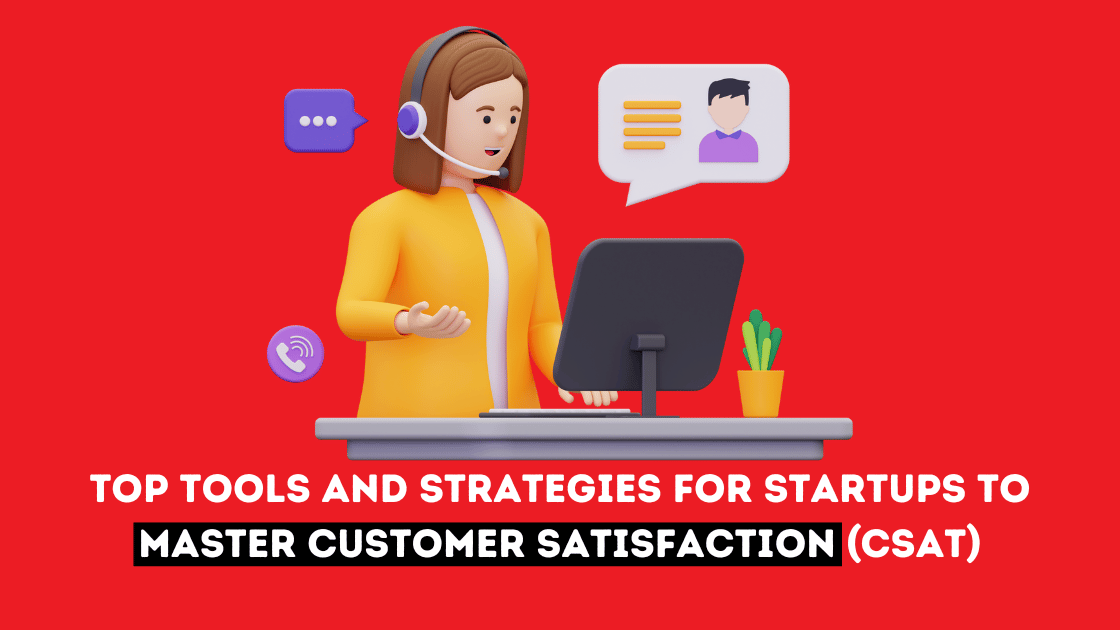Customer satisfaction (CSAT) is one of the most critical metrics for startups looking to build loyal customer bases and achieve sustainable growth. Understanding and responding to your customer’s needs in an increasingly competitive market can set your startup apart. Whether you’re offering a product, service, or both, mastering customer satisfaction is essential. Startups often ask what is a csat score and how it can impact their business strategies. This article delves into the tools and techniques that can help startups measure and improve their CSAT effectively.
Why CSAT Matters for Startups
Satisfaction of customers is not only for happy customers, but it is for the whole cycle of customer relationships. Satisfied customers will also be loyal customers who will return to your business and even recommend others. It can be a real plus or minus for the startups, as for most start-ups, getting the initial kick-start is a big issue.
CSAT scores offer quantifiable means of determining customers’ feelings about your product or service. CSAT is more concerned with the overall revenue or engagement levels, unlike other metrics that might be more concerned with the customer’s emotion at a particular point. This insight enables the startups to realize their weak points and correct them on time, leading to better customer satisfaction.
Further, the practice of high customer satisfaction rates typically means that other customers will consider your business superior and rate it higher on platforms relevant to your industry. These can be very useful for startups as they help gain their customers’ trust, and as their brand is still young, it can be invaluable to get such recognition.
Systems to Measure and Analyze CSAT
This is specifically true when it comes to the measurement of customer satisfaction, which is when the right tools determine everything. For startups, the tools used should be easy to use, have the capacity to grow with the firm, and offer precise analysis. Some survey tools like NICE CXone provide rich features that are more than just surveys, as they incorporate analytics into the survey results.
So many CSAT survey tools, such as SurveyMonkey and Typeform, are perfect for creating attractive surveys that people will want to fill in. They have friendly user interfaces that help startups set up questions and share surveys in ways that can achieve a diverse customer response.
Another tool that deserves attention is Zendesk, which is very good at integrating customer support with satisfaction surveys. When the support tickets are coupled with satisfaction data, startups can better understand how the service affects customer attitudes. Said knowledge can inform tactical alterations to improve the customer experience.
Approaches to Customer Satisfaction
However, it is also necessary to have effective methods as tools, as startups must have proper approaches to acting based on the information given by CSAT scores. In this vein, one of the main strategies is to work actively to develop a profoundly customer-oriented culture within the company. When all employees, ranging from product designers to customer care personnel, place the customer first, offering value that will impress the customers every time becomes simpler.
Another critical strategy is proactive communication. Customers should not wait for them to seek their attention because of a problem they are experiencing with a startup’s products or services. This makes clients trust you and satisfies them in the long run as you show that you appreciate their input and will take the necessary action.
Such feedback loops are critical when it comes to this process. It’s essential to follow up on CSAT surveys and to inform the customers that their feedback has been considered and addressed. This can only mean that you want to let them know the changes you have made based on their feedback or thank them.
Conclusion
Customer satisfaction is one of the most critical factors that are easy to neglect when managing a startup company. Yet, it is a good opportunity for startups to master customer satisfaction. CSAT survey platforms and data analysis software are valuable tools startups must use to offer improved customer experiences and create long-term client relationships. It’s essential to know a CSAT score, but the real value of the journey comes from the action taken due to the information received.

